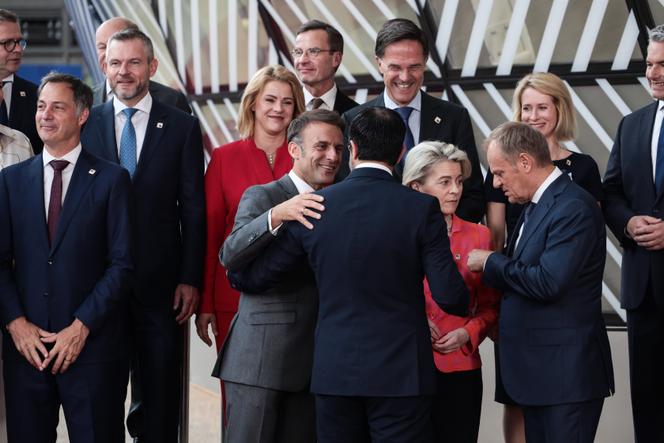


When the results of the French parliamentary elections came in on the evening of July 7, "the whole of Europe breathed a sigh of relief," Jean-Noël Barrot, the French minister delegate for Europe, said. While Italian Council President Giorgia Meloni, in Rome, and Hungarian Prime Minister Viktor Orban, in Budapest, were hoping for a Rassemblement National (RN, far right) victory, the vast majority of Europeans were delighted that the French far right had remained on the doorstep of power.
In Germany, Olaf Scholz said he was "relieved" by the outcome of the elections in France. "It would have greatly complicated matters if the French president had formed a cohabition [when the president and the prime minister come from different political camps] with a right-wing populist party (...) For the Franco-German friendship, this result is good news," said the Social Democratic Chancellor (SPD) on Monday, July 8, on the sidelines of a visit to Nuremberg. A feeling shared by all the governing parties in Germany.
The satisfaction of seeing the RN defeated was nevertheless coupled with concern, linked to the possible accession of the radical left La France Insoumise (LFI) to power. "Mélenchon is Germanophobic to the core. In his anti-German and anti-European tirades, he doesn't differ substantially from Marine Le Pen," said Michael Roth, the president (SPD) of the Bundestag's Foreign Affairs Committee in an interview with the daily Der Tagesspiegel.
Berlin is worried about the risk of paralysis in Paris. "Those who could govern together don't have a majority, and those who are approaching a majority are too different to govern together," worried Christian Democrat MP Norbert Röttgen, a foreign policy specialist with the Christian Democratic Union (CDU), for whom the Nouveau Front Populaire (NFP) left-wing alliance is one "of pure electoral expediency, incapable of governing and dominated by a majority of extremes." In his view – and the analysis is shared by many observers in Germany – it is the Fifth Republic's political system that has now been threatened with deadlock, to the point of "affecting Macron himself in his function as president."
Britain's brand-new prime minister, Labour leader Keir Starmer, made no secret during his campaign of his desire for a "rapprochement" with the European Union after the Brexit years, though without seeking to reintegrate the internal market or even the customs union. Starmer and his Foreign Secretary David Lammy intend to demonstrate this commitment as early as the NATO summit in Washington, from July 9-11. The fact that the French refused to give the RN an absolute majority is therefore a source of relief for Downing Street, even if the prospect of a paralyzed French government will probably slow down the progress of London's new relationship with Brussels.
You have 65.61% of this article left to read. The rest is for subscribers only.
